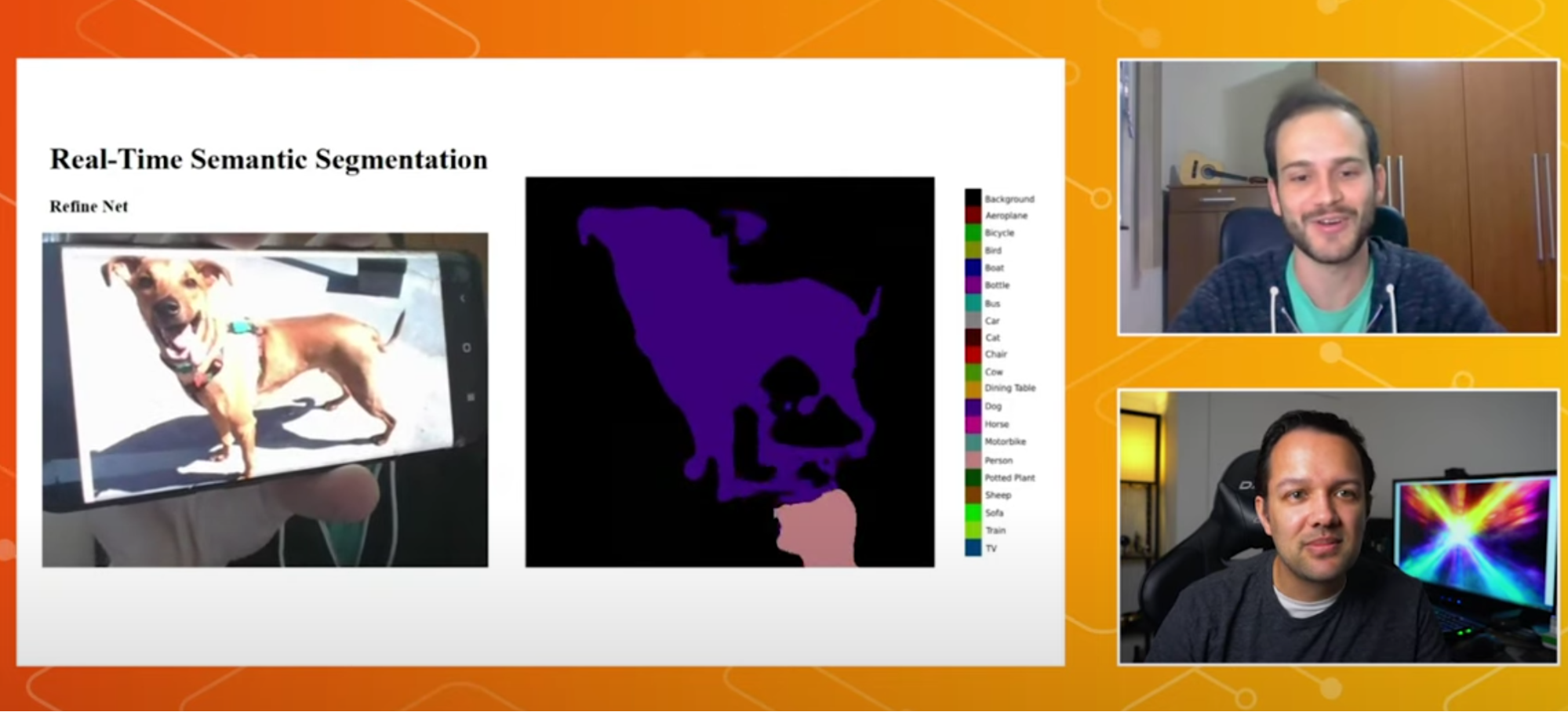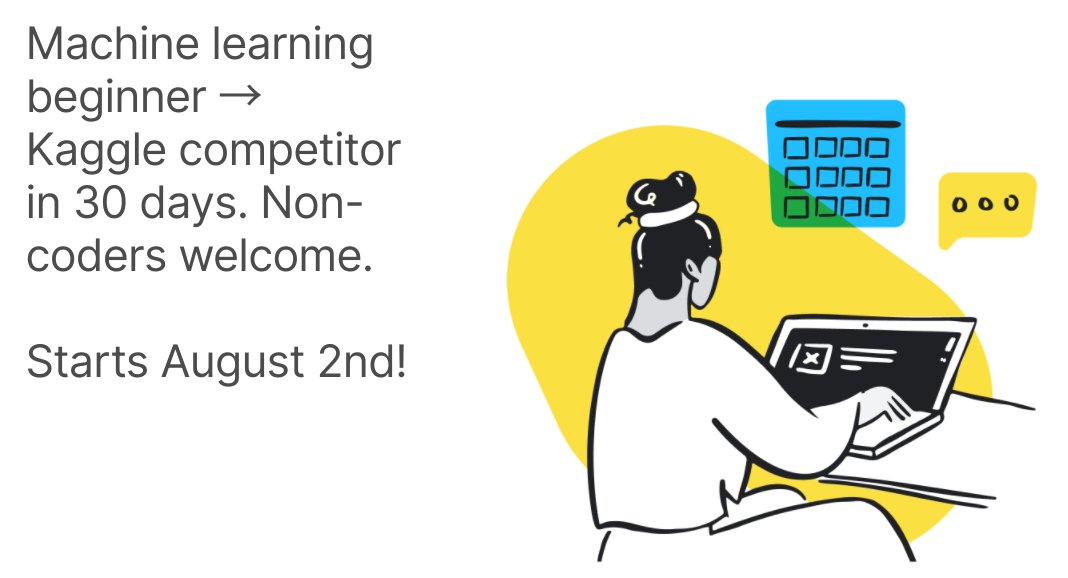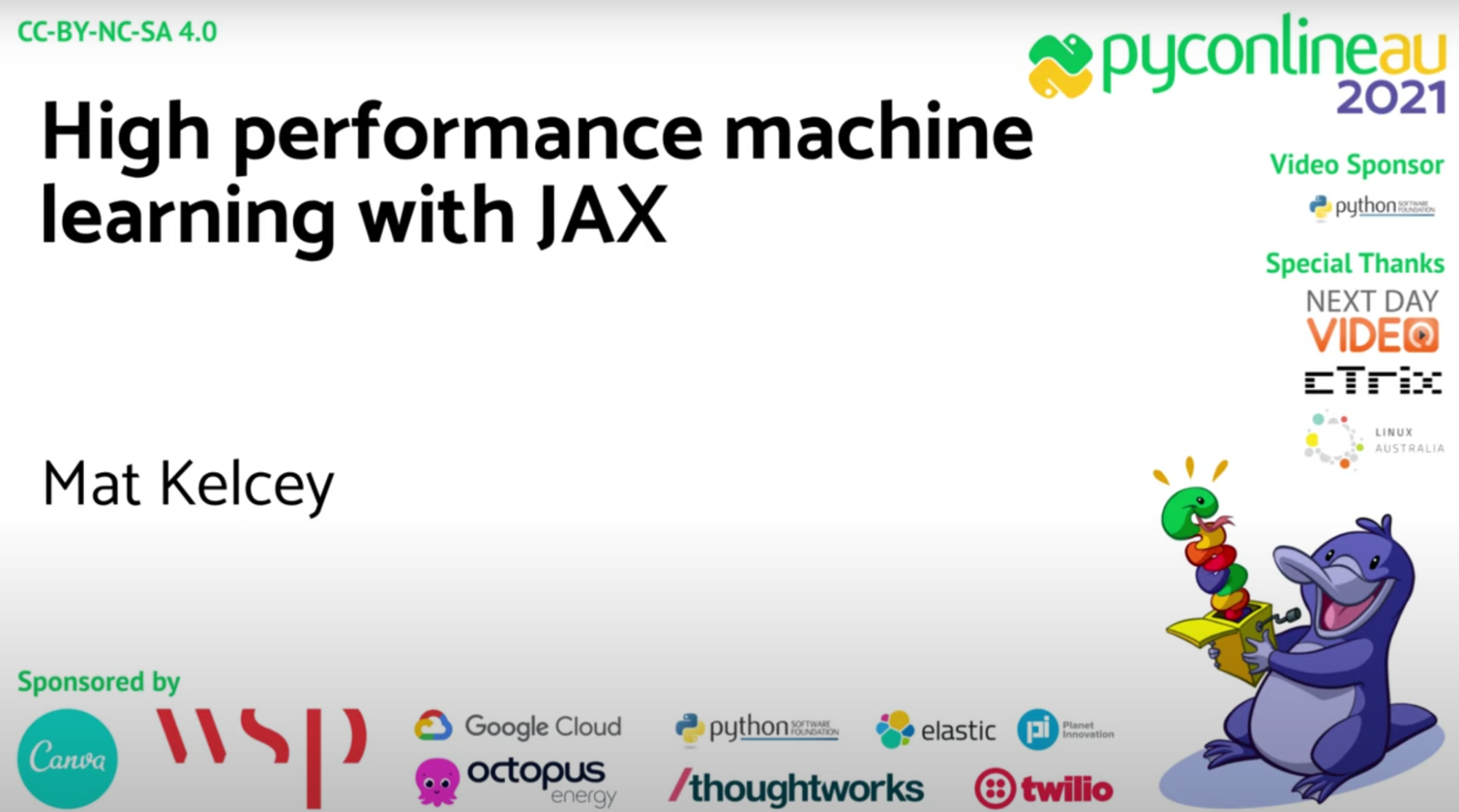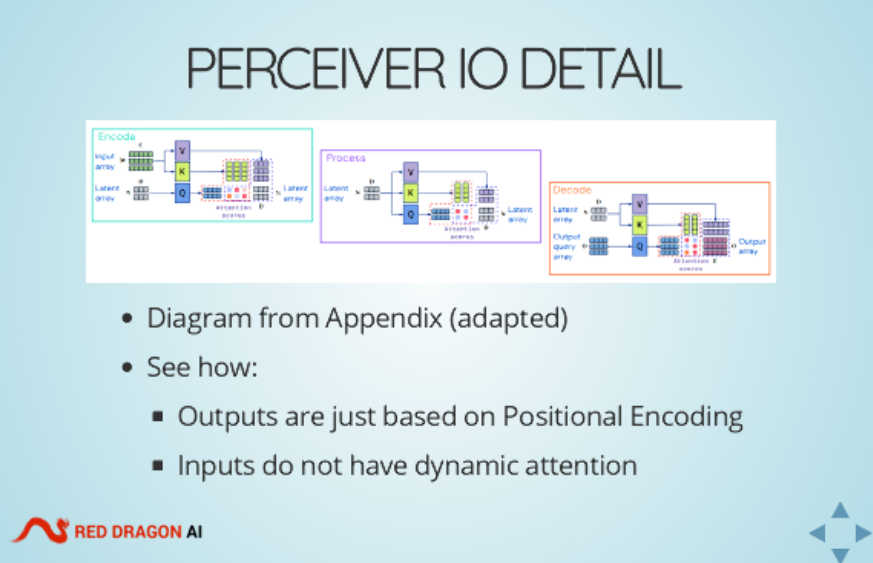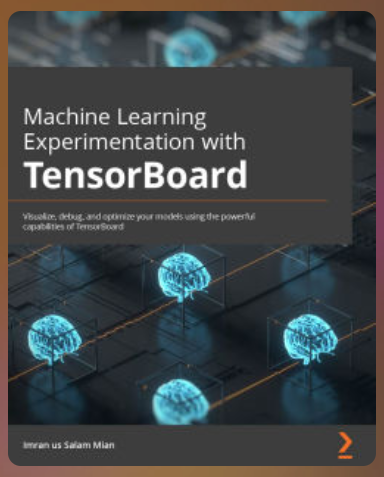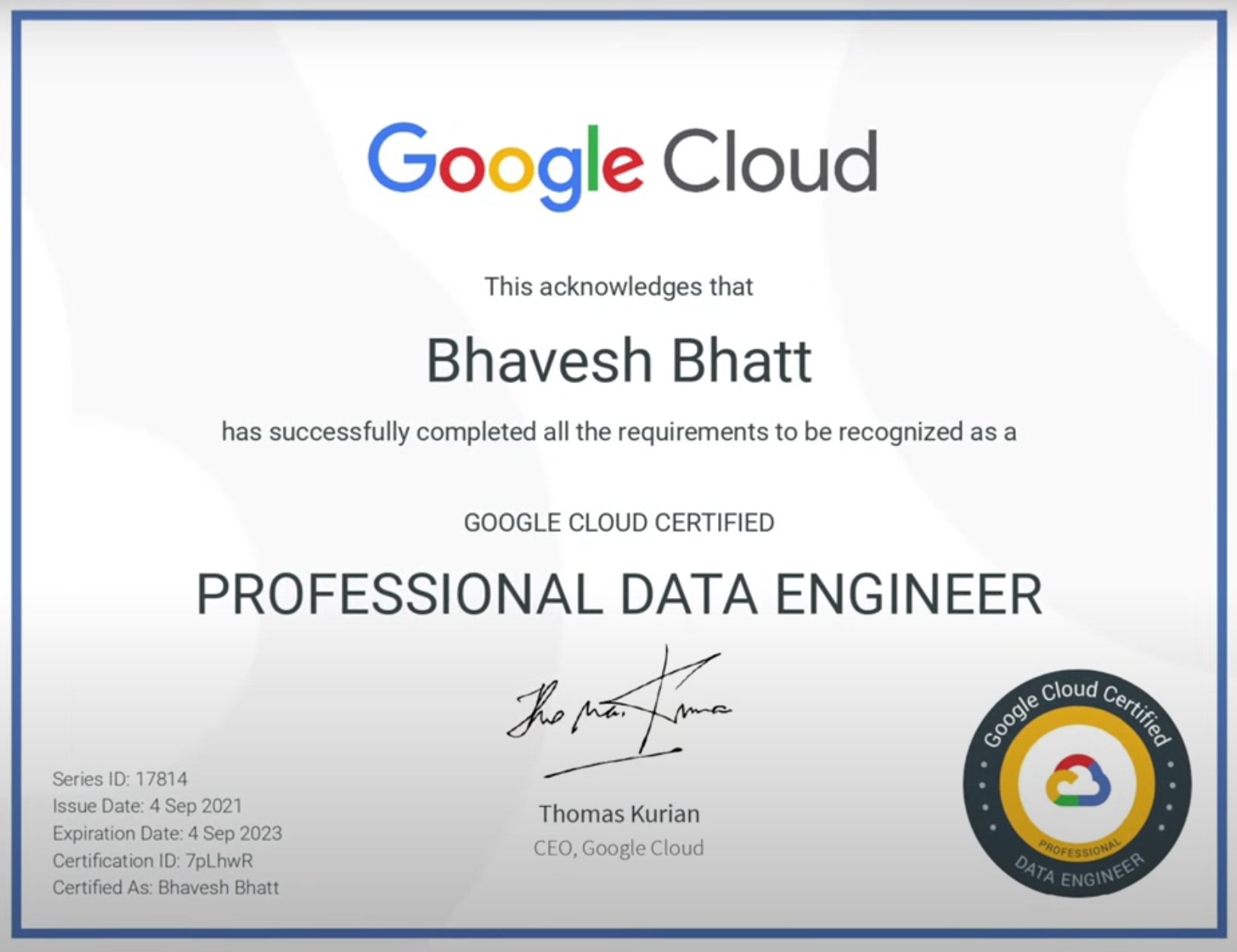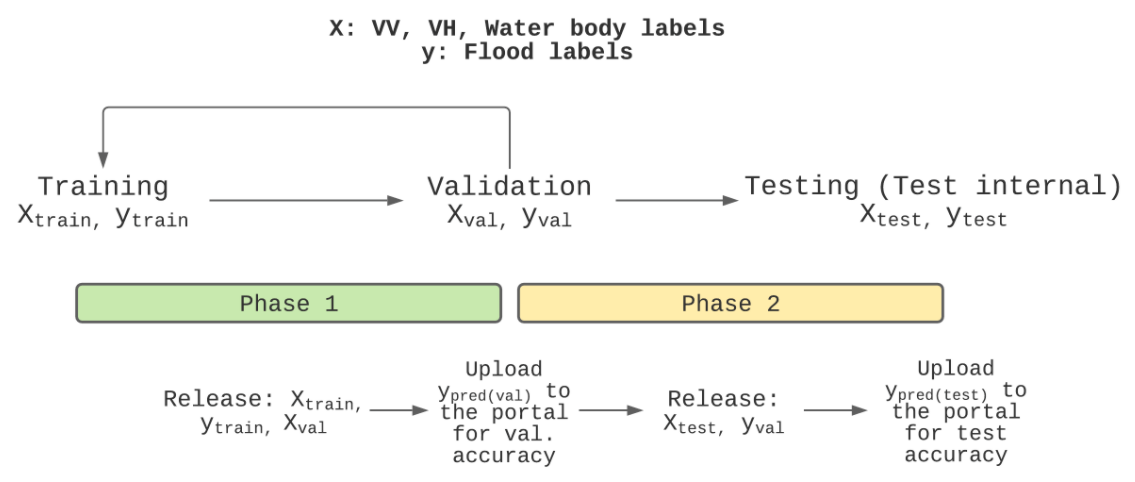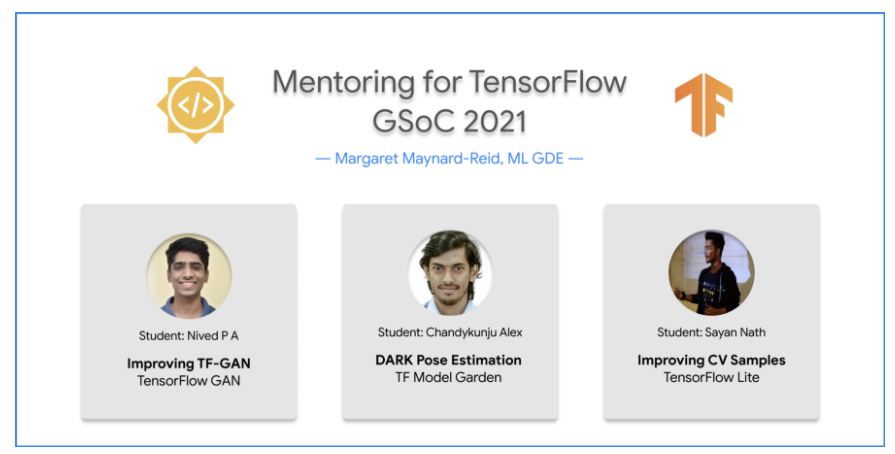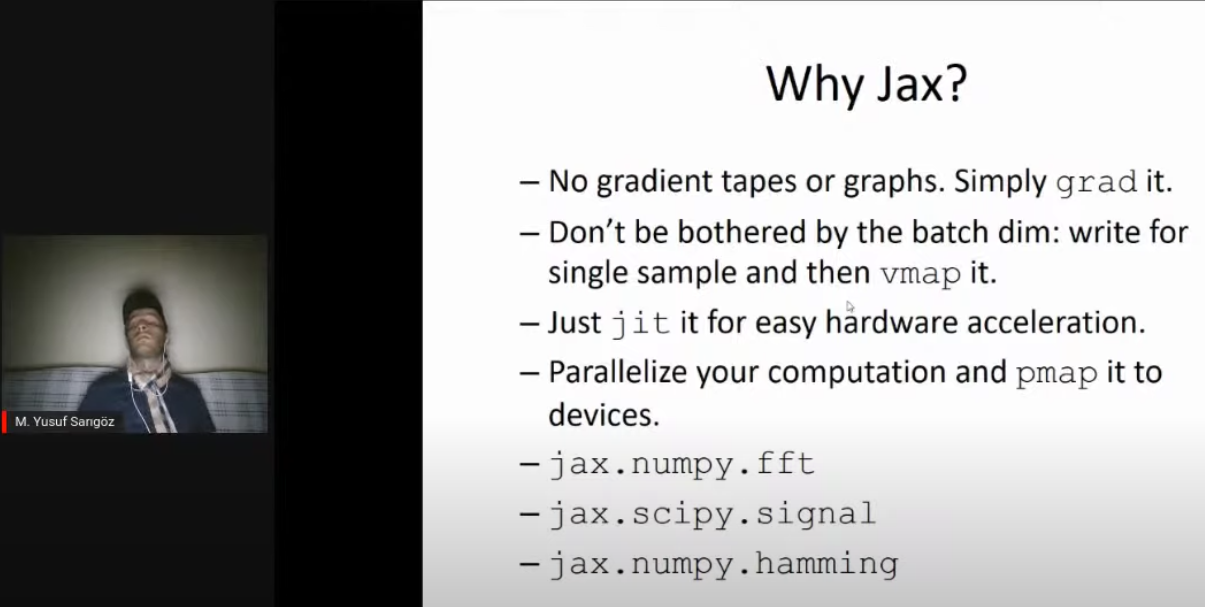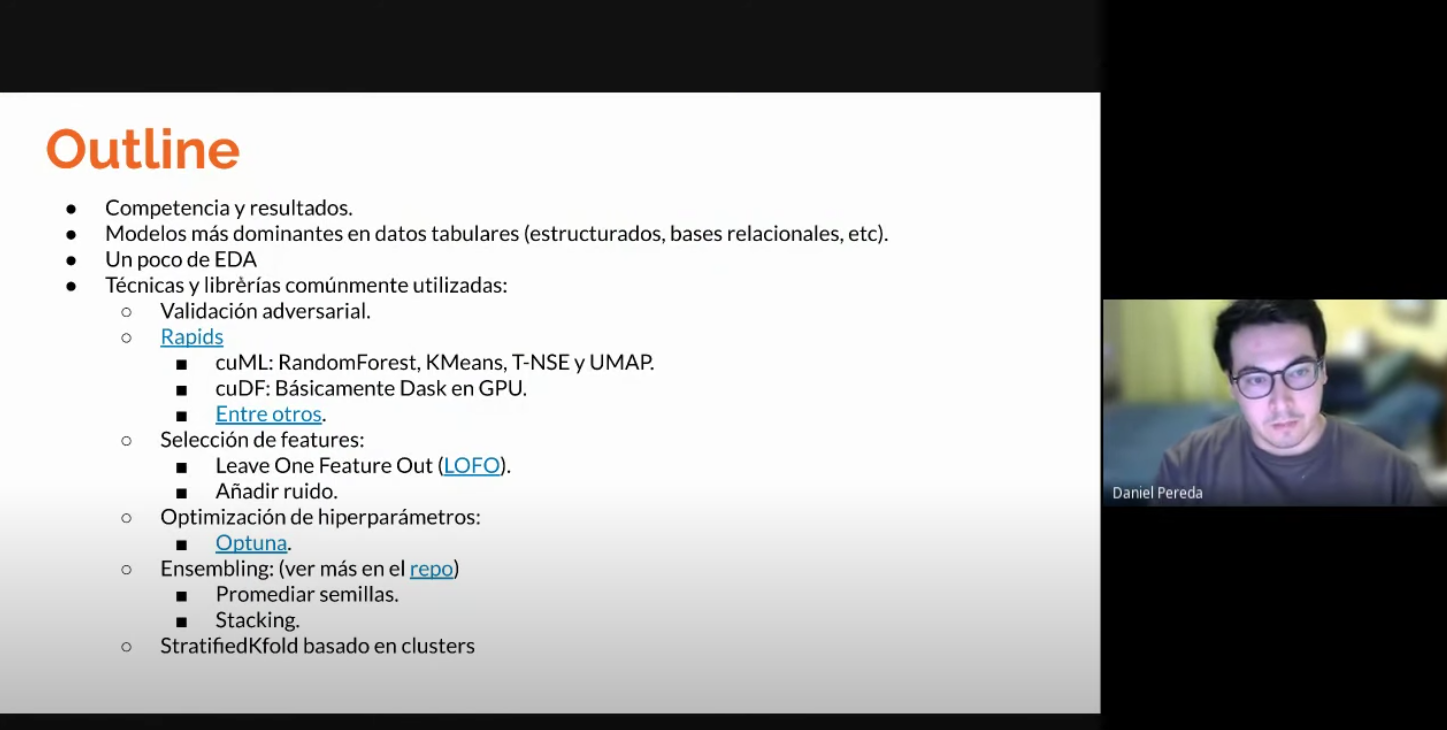Posted by Hee Jung, DevRel Community Manager

We are happy to announce ML Olympiad, an associated Kaggle Community Competitions hosted by Machine Learning Google Developer Experts (ML GDE) and TensorFlow User Group (TFUG).
Kaggle recently announced "Community Competitions" allowing anyone to create and host a competition at no cost. And our proud members of ML communities decided to dive in and take advantage of the feature to solve critical issues of our time, providing opportunities to train developers.
Why the ML Olympiad?
To train ML for developers leveraging Kaggle’s community competition. This is an opportunity for the participants to practice ML. This is the first 2022 global campaign of the ML Ecosystem team and this helps build stronger communities.

ML Olympiad Community Competitions
Currently, 16 ML Olympiad community competitions are open, hosted by ML GDEs and TFUGs.
Arabic_Poems (in local language) link
- Predict the name of a poet for Arabic poems. Encourage people to practice on Arabic NLP using TF.
- Hosts: Ruqiya Bin Safi (ML GDE), Eyad Sibai, Hussain Alfayez / Saudi TFUG & Applied ML/AI group
Sky Survey link
- Stellar classification with the digital sky survey
- Hosts: Jieun Yoo, Michael Mellinger / NYTFUG
Análisis epidemiológico Guatemala (in local language) link
- Make an analysis and prediction of epidemiological cases in Guatemala and the relations.
- Hosts: Alvin Estrada, Julio Monterroso / TensorFlow User Group Guatemala
QUALITY EDUCATION (in local language) link
- Competition will be focused on the Enem (National High School Examination) data. Competitors will have to create models to predict student scores in multiple tests.
- Hosts: Vinicius Fernandes Caridá (ML GDE), Pedro Gengo, Alex Fernandes Mansano / Tensorflow User Group São Paulo
Landscape Image Classification link
- Classification of partially masked natural images of mountains, buildings, seas, etc.
- Hosts: Aditya Kane, Yogesh Kulkarni (ML GDE), Shashank Sane / TFUG Pune
Autism Prediction Challenge link
- Classifying whether individuals have Autism or not.
- Hosts: Usha Rengaraju, Vijayabharathi Karuppasamy, Samuel T / TFUG Mysuru and TFUG Chennai
Tamkeen Fund Granted link
- Predict the company funds based on the company's features
- Hosts: Mohammed buallay (ML GDE), Sayed Ali Alkamel (ML GDE)
Hausa Sentiment Analysis (in local language) link
- Classify the sentiment of sentences of Hausa Language
- Hosts: Nuruddeen Sambo, Dattijo Murtala Makama / TFUG Bauchi
TSA Classification (in local language) link
- We invite participants to develop a classification method to identify early autistic disorders.
- Hosts: Yannick Serge Obam (ML GDE), Arnold Junior Mve Mve
Let's Fight lung cancer (in local language) link
- Spotting factors that are link to lung cancer detection
- Hosts: abderrahman jaize, Sara EL-ATEIF / TFUG Casablanca
Genome Sequences classification (in local language) link
- Genome sequence classification based on NCBI's GenBank database
- Hosts: Taha Bouhsine, Said ElHachmey, Lahcen Ousayd / TensorFlow User Group Agadir
GOOD HEALTH AND WELL BEING link
- Using ML to predict heart disease - If a patient has heart disease or not
- Hosts: Ibrahim Olagoke, Ahmad Olanrewaju, Ernest Owojori / TensorFlow User Group Ibadan
Preserving North African Culture link
- We are tackling cultural preservation through a machine learning model capable of identifying the origin of a given item (food, clothing, building).
- Hosts: elyes manai (ML GDE), Rania Boughanmi, Kayoum Djedidi / IEEE ESSTHS + GDSC ENIT
Delivery Assignment Prediction link
- The aim of this competition is to build a multi-class classification model capable of accurately predicting the most suitable driver for one or several given orders based on the destination of the order and the paths covered by the deliverers.
- Host: Thierno Ibrahima DIOP (ML GDE)
Used car price link
- Predicting the price of an imported used car.
- Hosts: Armel Yara, Kimana Misago, Jordan Erifried / TFUG Abidjan
TensorFlow Malaysia User Group link
- Using AI/ML to solve Business Data problem
- Hosts: Poo Kuan Hoong (ML GDE), Yu Yong Poh, Lau Sian Lun / TensorFlow & Deep Learning Malaysia User Group
Navigating ML Olympiad
You can search “ML Olympiad” on Kaggle Community Competitions page to see them all. And for further info, look for #MLOlympiad on social media.
Google Developers support ML Olympiad by providing swag for top 3 winners of each competition. Find your interest among the competitions, join/share them, and get your part of the swag for competition winners!




